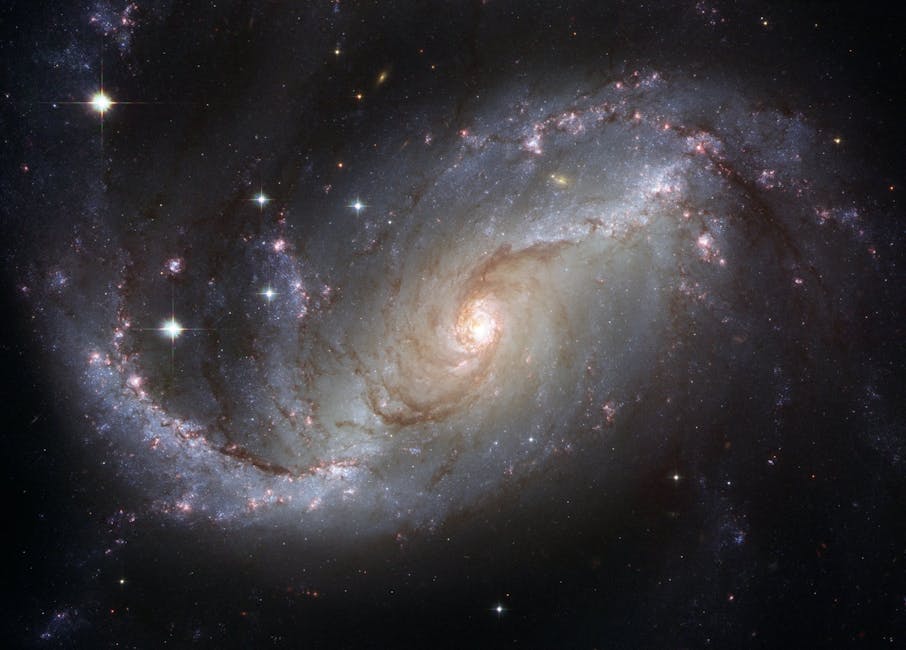A galaxy or galaxy is a gravitational boundary of stars, stellar residues, interstellar gases, dust, and dark matter. The word galaxy in English is derived from the Greek galaxy ,. which literally means "milky", a reference to the Milky Way. Whereas in India the word galaxy is derived from Sanskrit, which is mentioned in our archeological texts. Galaxies range in size from dwarfs to a few hundred million (109) stars, with one hundred trillion (1012) stars, each vortex orbiting the center of its own galaxy.Meaning of galaxyA galaxy is a vast collection of gas, dust and billions of stars and their solar systems. A galaxy holds them all together due to massive gravity. "A representation of the galaxyOur Milky way galaxyOur Milky Way is called Kshiramarga or Mandakini or Milky Way in English, in which the Earth and our solar system are located. Our galaxy is a spiral galaxy in shape, with a large center and several curved arms emanating from it. Our solar system is located on its Orion-Cygnus Arm. Our galaxy has between 100 billion and 400 billion stars and it is estimated that there will be about 50 billion planets, 500 million of which are at a distance from their stars to keep life-worthy temperatures. A survey in 2011 found the possibility that there could be more planets than this estimate - according to this study the galaxy may have twice the number of stars. Our solar system is located on the outskirts of the galaxy and is orbiting the center of the galaxy. It takes about 22.5 to 25 million years to do a complete orbit.Some East Asian civilizations saw a river in the galaxy, like the word "galaxy". The galaxy is called "silver river" in Chinese and also "mirinae" (ie "silver river") in Korean language.Galaxy words, name and its historyGalaxy words in Hindu sanskrit :-In Sanskrit and many other Indo-Aryan languages, our Galaxy has been called the "Milky Way". In the Puranas, the Milky Way and the river Ganges on Earth are considered to be a pair of each other and both are considered sacred. In ancient Hindu religious texts, the Milky Way has been called "Kshir" (ie milk). Even outside the Indian subcontinent, many civilizations found the Milky Way milky. The word "galaxy" originates from the Greek word "gala", which also means milk. Persian is an Indo-Iranian language just like Sanskrit, so its word for "milk" is a homogeneous word "sheer" similar to Sanskrit "kshir" and the galaxy is called "rah-e-shiri". In English, the Milky Way is called the "Milky Way", which also means "the path of milk".Galaxy names:-Thousands of galaxies have been listed so far, but only a few have well-established names, such as the Andromeda Galaxy, the Magellanic Clouds, the Whirlpool Galaxy, and the Sombrero Galaxy. Astronomers work with numbers from some catalogs, such as the Messier catalog, NGC (New General Catalog), IC (index catalog), CGCG (list of galaxies and groups of galaxies), MCG (morphological catalog of galaxies) and UGC ( Uppala General Catalog of Galaxies). All famous galaxies appear in one or more catalogs but each time under a different number. For example, Messier 109 is a spiral galaxyThe word "galaxy" was derived from the Greek word for France and medieval Latin. In astronomical literature, the capital term "galaxy" has often been used to refer to our galaxy, the Milky Way, to distinguish it from other galaxies in our universe. The English word Milky Way can also be traced to a story by Chaucer c.We are small beings in such a large galaxy, so live happily ever after.
However! Everything mentioned here will be very useful for you. Because everything is connected with science. By the way, I have mentioned more special things here, which will make your eyes wide open after reading. By the way, let me tell you more that every thing given here has been taken after doing a special kind of search. So, read it with patience. Apart from this, I will tell you more knowledge related to the moon, which you will definitely be obliged to read. Therefore, without any delay, we go ahead in this article to know the interesting things of the moon. So, the moon is an astronomical sub-planet, which keeps revolving around our earth. If this is not an interesting thing related to the moon, then stay here a little, because the story has just started. The moon is the fifth largest sub-planet in our solar system. The age of our moon is closer to our Earth. It has only been 4.51 billion years. Most people here have an illusion that they can see both the surface of the ...





Comments
Post a Comment